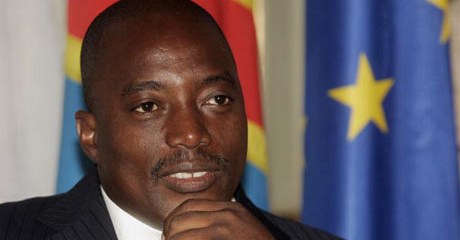The recent elections in the Democratic Republic of Congo were "seriously flawed", the US has warned as it called for a review of the process.
Official results gave President Joseph Kabila 49% of the vote against 32% for opposition leader Etienne Tshisekedi.
But the results' credibility has been criticised by the EU, the Carter Center and other election monitors.
The US ambassador to the country said there had been several "irregularities".
"The United States believes that the management and technical execution of these elections were seriously flawed," Ambassador James Entwistle said in a statement to Reuters news agency.
"[They] lacked transparency and did not measure up to the positive democratic gains we have seen in recent African elections," he said.
Mr Entwistle said that the US and other Western donors were offering technical assistance to the Congolese to review irregularities identified by observer missions, an offer which has already been welcomed by the country's prime minister, he said.
Continue reading the main story
Who is Joseph Kabila?
40 years old
Born in a rebel camp in eastern DR Congo – where he enjoys most of his support
Spent his childhood in Tanzania
The country's Supreme Court must decide by 17 December whether or not to validate provisional results.
Mr Tshisekedi rejected the result and has declared himself president.
President Kabila has rejected claims that he won elections through widespread rigging but admitted that "mistakes" had been made.
Mr Kabila has said that earlier criticism about the credibility of the results went "far beyond" the mistakes he acknowledges were made.
In a statement earlier this week, the Carter Center, which had 26 teams of observers monitoring the elections, pointed to differences in the vote count between areas where Mr Kabila had strong support and areas that favoured Mr Tshisekedi.
Some constituencies in Katanga province "reported impossibly high rates of 99 to 100% voter turnout with all, or nearly all, votes going to incumbent President Joseph Kabila", the Center said.
Meanwhile in Kinshasa, where Mr Tshisekedi has strong support, results from nearly 2,000 polling station stations were lost – roughly a fifth of the city's total.
The elections are the first Congolese-organised polls since the end of a devastating war in 2003 which left millions dead.
An earlier poll in 2006 was organised under the auspices of the United Nations.
Mr Kabila has been president since 2001 following the assassination of his father, Laurent and he is due to be sworn in on 20 December for his second term if his victory is confirmed by the Supreme Court.



